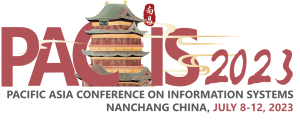Abstract
Public organizations are adopting Robotic Process Automation (RPA) to enhance process performance. However, there is a lack of knowledge regarding how RPA specifically advances routine practices in public organizations, particularly in developing countries. To address this research gap, we conducted an interpretive case study in Turkey, focusing on the implementation of RPA from the perspective of technology as routine capability. Our findings reveal that the case organization has advanced its practices by leveraging RPA affordances, implementing effective governance mechanisms, and developing automation capabilities. This research contributes unique contextual insights into the implementation of RPA within a public organization situated in a developing country. The empirical evidence demonstrates the transformative impact of RPA on organizational practices and provides guidance for optimizing RPA governance practices and sustaining RPA-enabled automation capabilities. This study offers practical implications for public organizations aiming to leverage RPA as part of their broader digital transformation initiatives.
Recommended Citation
Güner, Evrim Oya and Han, Shengnan, "Robotic Process Automation as Routine Capability: A Case Study of a Public Organization in Turkey" (2023). PACIS 2023 Proceedings. 176.
https://aisel.aisnet.org/pacis2023/176
When commenting on articles, please be friendly, welcoming, respectful and abide by the AIS eLibrary Discussion Thread Code of Conduct posted here.



Comments
Paper Number 1679; Track General; Complete Paper